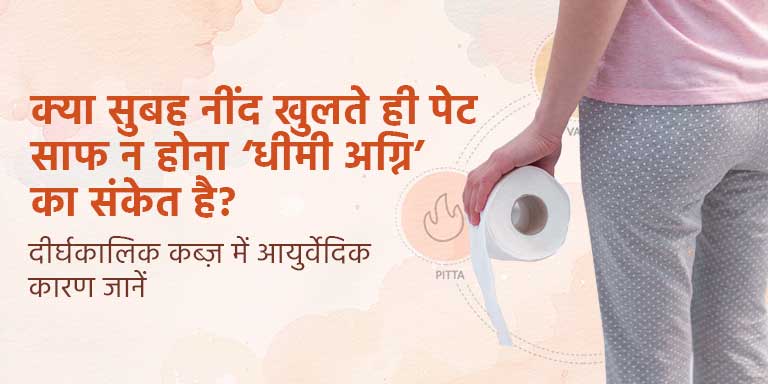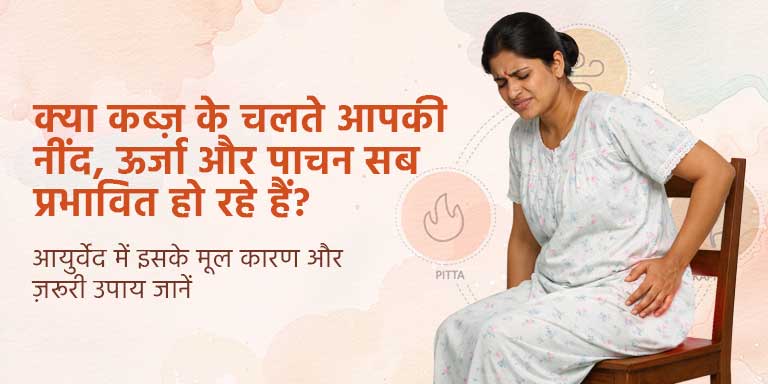Although all these sound like different diseases, Ayurveda describes them to be caused by increased pitta (heat or fire) in the stomach. The common heartburn which we often ignore can cause diseases like joint pains, arthritis, stones in the gall bladder, urinary tract infections and certain diseases of the uterus. Hyperacidity or heartburn is generally the first stage of disease manifestation and can be easily controlled by making changes in food and life style.
Causes:
According to Ayurveda, an improper diet and lifestyle is the main cause of disease. In our modern life, there are a lot of factors in our diet and lifestyle that increase pitta. All foods and activities that are heating increase pitta. This includes hot, spicy, fried, oily and greasy foods. Exposure to heat and sun, intake of too much of chemicals in foods or medicines, drinking too much tea, coffee or alcohol and smoking also aggravate pitta. Excessive thinking, anger and mental stress are other additional factors that increase pitta.
Remedies:
- A very simple way to avoid heartburn or an increase of pitta in the stomach is to avoid overeating. Always leave a part of the stomach empty for the movement of food during digestion. Try to regulate your eating hours.
- Drinking about two litres of (8-10 glasses) of water in the morning immediately after waking up is a very good way to reduce or balance pitta in the stomach. Storing the water in a copper pot overnight yields even better results.
- Eat fresh and natural foods. Avoid preserved, canned and fast foods.
- Maintain at least four hours of interval between two meals. If you really love eating instead of taking three big meals you should take four or five smaller meals.
- Never suppress natural urges such as passing urine, stool or flatus, sneezing, belching, yawning, and even crying. Suppression of such urges blocks the pitta in the stomach.
- A very good recipe for balancing pitta is a banana mashed in 200 ml of milk (without cream). One teaspoonful of raw sugar can be added as a sweetener. This can be taken at breakfast or at any other time during the day. Avoid putting ice in this drink.
- Eating boiled squash helps to relieve and prevent heartburn and should be included in your diet as often as possible.
- Take five almonds and soak them in water for at least four hours. Remove the skin, make a paste and mix it with 200 ml of milk. One teaspoonful of raw sugar can be added as a sweetener. This recipe can be prepared and taken twice a day.
- Cabbage is another useful home remedy for hyperacidity or heartburn. Cut 100 gms of cabbage into small pieces and boil in 250 ml of water till the water reduces to 100 ml. Let cool. Have half of this in the morning and the other half in the evening.
- The juice of raw vegetables (except those sour/acidic in taste) helps to reduce pitta in the stomach. A dose of about 250 ml of mixed vegetable juice (cabbage, carrot, beetroot and cucumber) may be taken twice a day.
- The powder of Amla or Indian Gooseberry (Embilica officinalis) is a very good medicine for reducing an excess of pitta in the stomach. The dose is 3-5 grams (half to one teaspoonful) twice a day with water.
- Coconut reduces pitta effectively. Drinking its water is very helpful. A paste of the pulp of raw white coconut may be eaten to reduce hyperacidity. The dose is three tablespoonful (30 grams) two or three times a day. A glassful (250 ml) of the milk squeezed out of raw coconut pulp taken twice a day also helps to reduce hyperacidity.
Try some of these remedies and put out the fire that is burning you out!



.jpg)
.jpg)

.jpg)

.jpg)

.jpg)

.jpg)



















